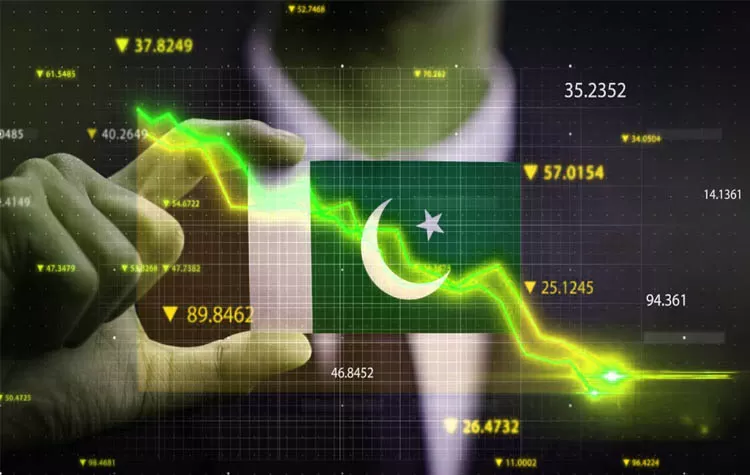
Geopolitical tensions increase mass investor outflow in Pakistan
Pakistan Stock Exchange suffered a sharp downturn with India's stern actions taken following the recent terror strike on Pahalgam. The KSE-100 benchmark index fell more than 2 percent soon after the markets opened, indicating intense uneasiness of investors about increasing local tensions. Indian strategic moves like cancellation of important bilateral understanding have been propelling increasing market uncertainty in Pakistan, showing patterns of behavior from the market society in fear.
Severe Market Reaction to Diplomatic Measures
KSE-100 index fell steeply by 2.12%, losing almost 2,485 points, to reach 114,740 points in early session trading. The move came on the heels of news that India had issued stringent measures, which included revocation of the Indus Waters Treaty, suspension of cross-border facilitation at Wagah-Attari border, and cancellation of issuing visas. Seen as a move made immediately at the behest of the terror attack at Pahalgam, these occurrences instilled investor morale for long-term volatility. Investor Sentiment Sour Over Geopolitical Issues
Investors went into risk-off immediately, with resultant indiscriminate sell-offs in major segments. The belief that India's actions could permanently shift the regional balance of power favored India further added to the already low investor optimism in Pakistan's market. Traders' concern with capital preservation increases as tension grows, and this is driving steep falls in share prices in banking, energy, and industrial segments.
Economic Outlook Further Weakened by IMF Projection
Coupled with the market's woes, the International Monetary Fund has also lowered Pakistan's GDP growth rate to 2.6% recently. The reduction has also added to the fears that already surrounded the country's economic stability. While global institutions raise concerns over prospects for recovery, domestic investors are becoming increasingly more apprehensive, further adding to the market downturn.
Comparative Market Performance Across Borders
While Pakistani bourses registered steep falls, the effect was limited in Indian bourses. In the afternoon, the BSE Sensex fell by a small 275 points, or around 0.34%, to 79,841. The Nifty fell by 68 points to 24,260. This massive difference indicates varying degrees of investor psychology and economic performance of the two countries in the new diplomatic standoff.
Sector-Wise Impact and Trading Trends
In Pakistan, sectors with high foreign exposure suffered the most from the sell-off in the market. Financial stocks spearheaded the declines, followed by energy and infrastructure-related stocks. Analysts note that intense geopolitics will keep on keeping foreign investors away, providing low market liquidity and increasing volatility in the short term.
Analysts Call for Policy Clarity
Market analysts term the call for open communication by regional players as well as Pakistani authorities. With confidence from investors already at a low level, assurance of Pakistan's economic and diplomatic transformation would help to normalize trading patterns. Market players, on their part, will adopt a defensive strategy with riskier vehicles taking a backseat.
In the times to come, market trends will be decisively influenced by the way India-Pakistan diplomatic trends unfold. Policy pronouncements and foreign mediation initiatives are being closely watched by analysts and investors alike. Any suggestion of stabilization or favorable dialogue would go to soften market volatility and tempt cautious reinvestment.
Limited Spillover to Regional Markets
Even while Pakistan's internal strife continues, regional financial markets have been holding firm. The muted response in India's stock market indexes indicates that overall regional instability has not yet emerged as a reason for investor unease. Yet if tensions continue, neighboring economies can also start to feel economic aftershocks.














